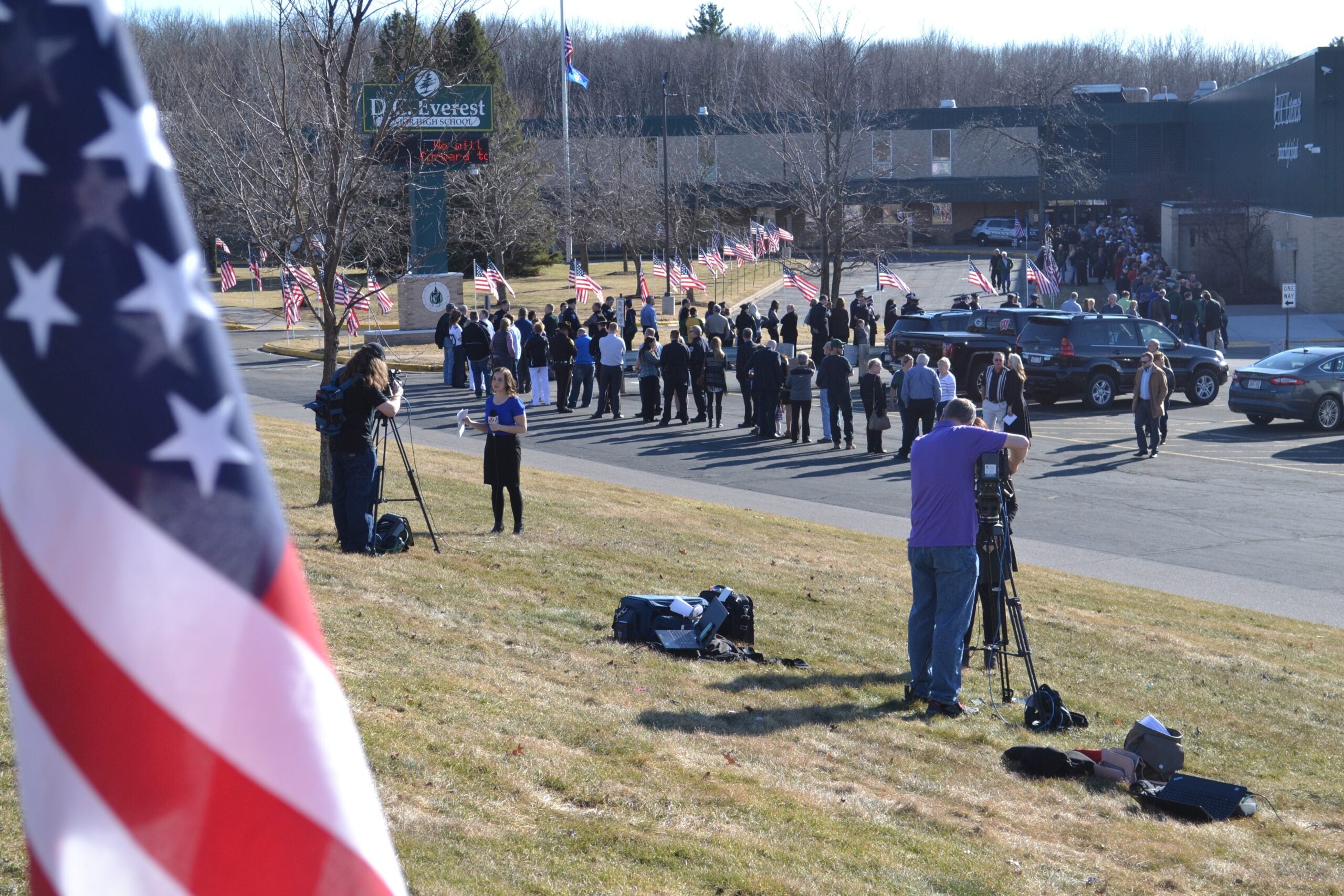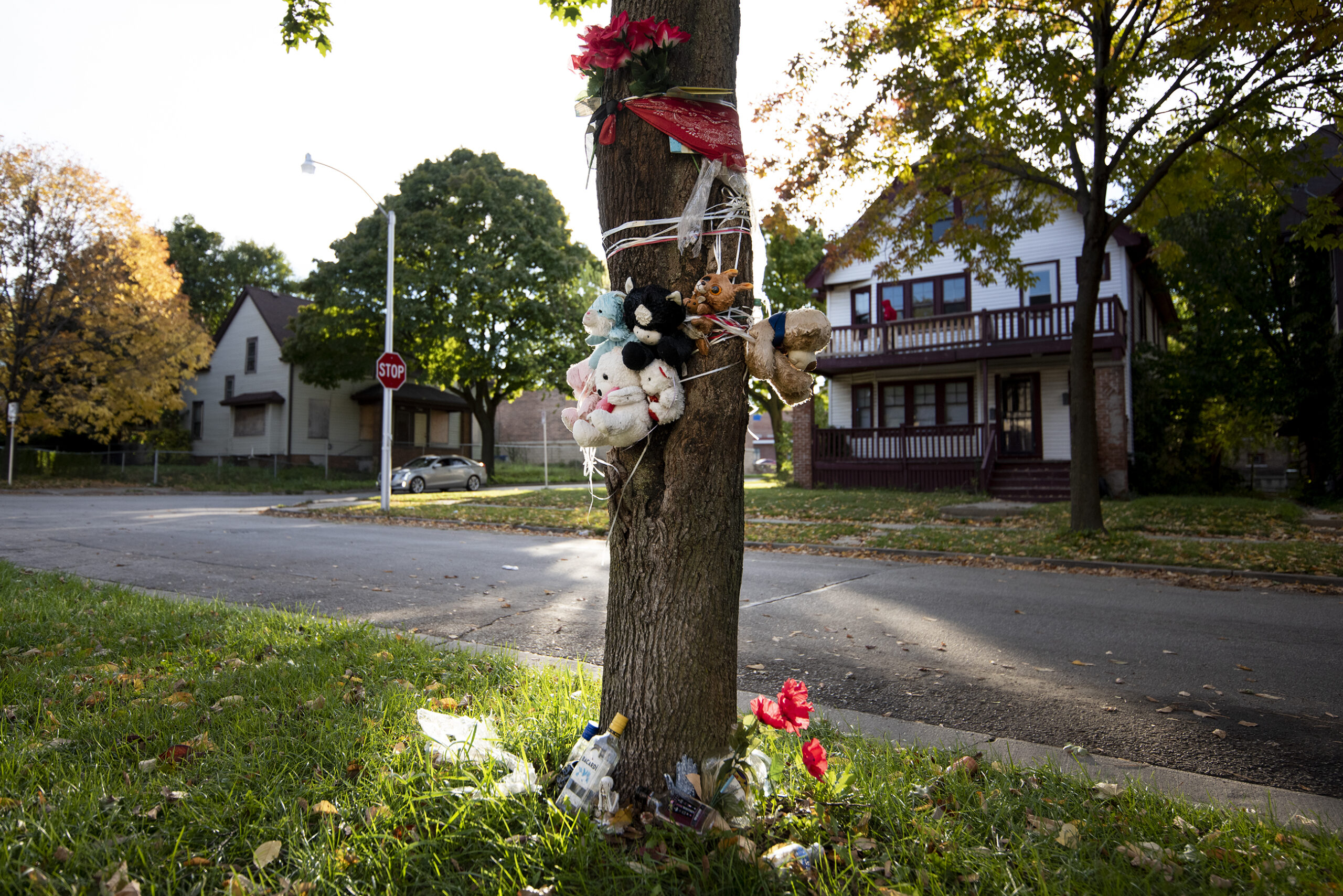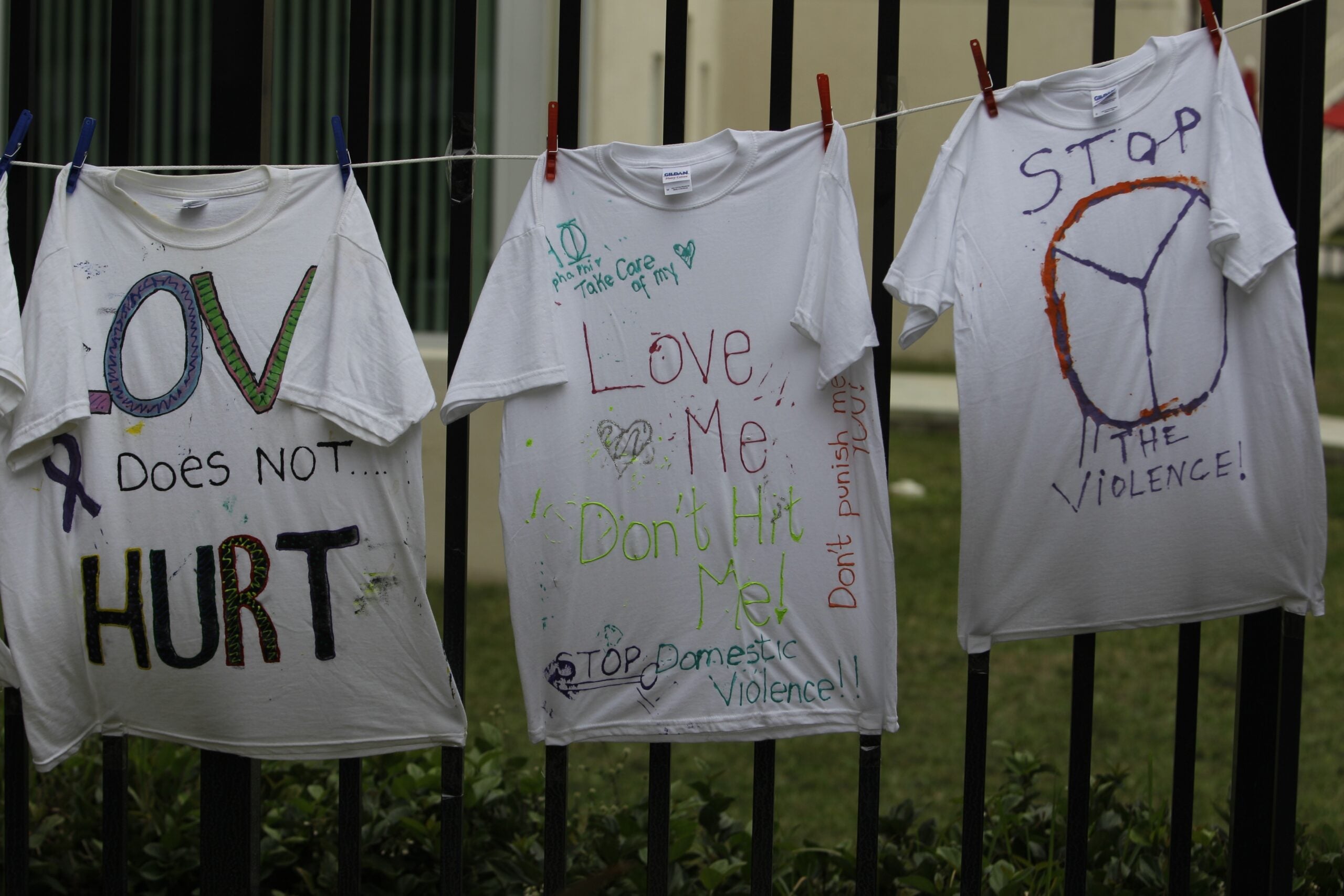In the seven months since a multiple shooting incident in the Wausau area involving members of the region’s tight-knit Hmong community, there has been a renewed conversation surrounding issues of domestic violence and cultural traditions.
As community leaders work to prevent similar incidents, some argue there’s a need to counter attitudes among traditional segments of the Hmong population. Others worry that focusing on the violent actions of a few people unfairly characterizes an entire community.
On March 22, Nengmy Vang, enraged at a pending divorce, killed four people in a half-hour’s time. Two bank employees, Karen Barclay and Dianne Look, were shot helping Vang’s wife escape.
Stay informed on the latest news
Sign up for WPR’s email newsletter.
Ten minutes after the bank employees were killed, Vang shot and killed his wife’s attorney, Sara Quirt Sann. Twenty minutes after that, Everest Metro Police Detective Jason Weiland became the killer’s fourth victim.
As Police Department Chief Wally Sparks sees it, Weiland’s death was the latest statistic in a string of domestic related killings involving Hmong men in the Everest Metro jurisdiction, which covers the southern part of the Wausau area.
“Since 2006, we’ve had eight homicides. Six of those were committed by Hmong men and were domestic related. We had an additional case where a Hmong man shot his wife in the chest but she survived,” Sparks said.
Sparks blames old cultural attitudes that he said are plaguing a minority of the Hmong population.
“There were three individuals that were arrested that all referenced the March 22 shooting, three Hmong men who threatened to do the exact same thing,” Sparks said. “When you have three people stepping forward, and all basically blaming the wife for the killing of four innocent people in this community, there’s some mindset that needs to be changed.”
Kham Thong Yang, former board president of Wausau’s Hmong American Center, disputed Spark’s use of statistics.
“It’s offensive when other ethnic groups point fingers at our culture,” Yang said. “There are over 7,000 Hmong residents in the Wausau area, and those six individuals do not reflect our community.”
Yang called them “bad apples.”
“I am angry at the (few) old people that commit these crimes and make poor decisions, and it reflects badly on myself and a lot of good Hmong men out there. We love our wives. They are our foundation, and I would never do anything to harm them,” Yang said.
But there are some in the Hmong community who think old cultural attitudes can be a problem.
Mao Khang is a high-ranking Hmong leader, the first woman to serve as a vice-president on the Hmong 18 Council of Wisconsin’s leadership team. She is also the Southeast Asian outreach director at the Women’s Community, Wausau’s domestic violence shelter.
“In domestic violence in the Hmong community, it’s silence,” Khang said. “You can’t say anything. You can’t tell anybody. If you do, and anybody tries to help you, then somebody is trying to break the marriage.”
Khang said while most Hmong men were “ashamed”, some praised Nengmy Vang for his murderous rampage.
“There are some men who will call him a hero, because he has killed people that are helping victims,” Khang said.
More than 20 Hmong women attended a meeting in July organized by the Women’s Community to talk about domestic violence. The meeting was attended by law enforcement officials, the Marathon County district attorney, and women’s advocates. Sparks and Jane Graham Jennings, executive director of the Women’s Community, were among them.
“They couldn’t tell their husbands they were going or they probably would have been victimized had they known they were there,” Sparks said.
“Part of what’s so beautiful about the community is they’re so tight-knit, and they have support for one another in amazing ways. But it’s also problematic when the support is against an individual, this individual woman who is blamed for all the family’s problems,” Jennings said. “If they don’t change or don’t recant their story, they get pressure from clan leaders. They get pressure from family members. They get so much pressure to just fall in line, that they often do, and they really feel extremely powerless and voiceless.”
Domestic violence in central Wisconsin’s Hmong community is not a new concern. In 2009, before he died, the revered Hmong leader General Vang Pao came to Wausau to lecture clan leaders after a series of domestic violence incidents.
“The husband has to respect the wife as he respects himself,” Pao said from a stage at the University of Wisconsin-Marathon County. “We are Hmong. We are smart. We are very beautiful people. We have a great culture, and we don’t want to have a bad name for Hmong people. Do your best to be a role model. I’m telling you today to stop.”
Following his visit, local Hmong leaders put Pao’s message in a handbook, calling for equal treatment for women. Police Chief Sparks says there is a new effort to get the handbook translated so its message takes hold.
“I think very few Hmong people actually know what’s in that handbook or have access to it … the things that all the clan leaders were supposed to have agreed to,” he said.
Sparks chairs a domestic violence committee on an organization called Wausau-Metro Strong, which was formed to help the community move forward after the March 22 shootings.
“I think what we’re really looking for is male leadership within the Hmong community to step up like Gen. Vang Pao did and say, ‘this is wrong,’” he said.
Kham Thong Yang said that whenever domestic violence occurs, it needs to be addressed.
“When we see a couple, a husband and wife, and one is abusing the other, we need to stand up for that. We shouldn’t hide any of that,” Yang said. “Penalties should be increased.”
But for Bob Look, whose wife Dianne Look was one of those killed in March, blame for his wife’s death doesn’t rest with Hmong people or their culture.
“In no way, shape or form do I hold the Hmong community responsible or blame them for the incident. This was one individual. A greedy, selfish individual who created this mess,” Look said.
He said he is still good friends with the Hmong woman that Nengmy Vang was stalking and Dianne Look was trying to protect.
“After this happened, I had to reach out to let her know that there’s no blame coming from me,” Look said. “She’s a victim just as much as my wife and Karen and the rest of the people.”
Wisconsin Public Radio, © Copyright 2025, Board of Regents of the University of Wisconsin System and Wisconsin Educational Communications Board.




